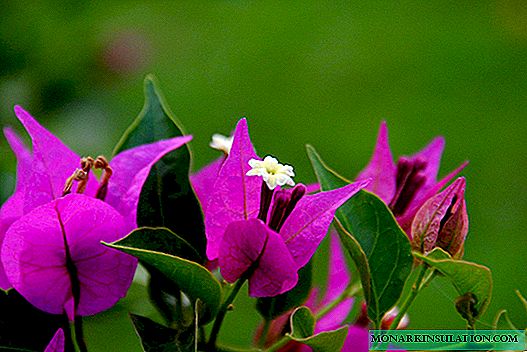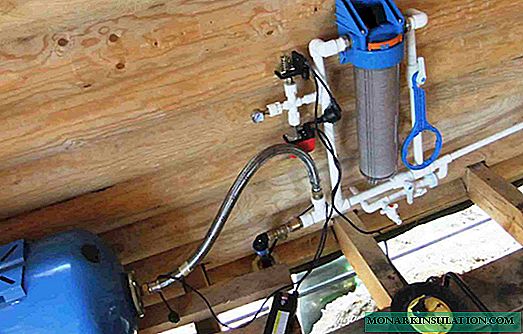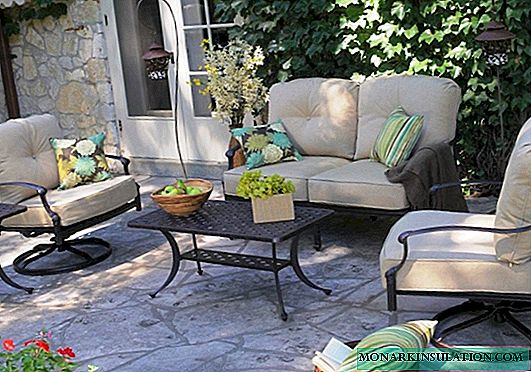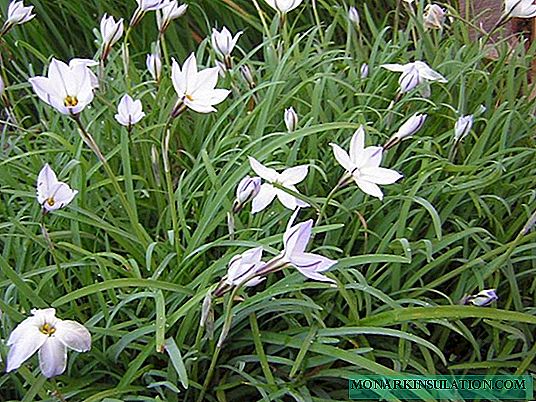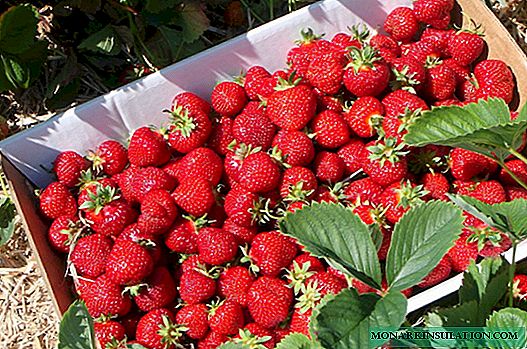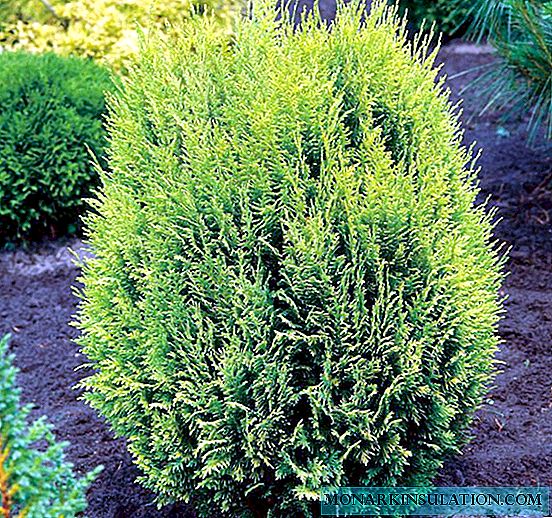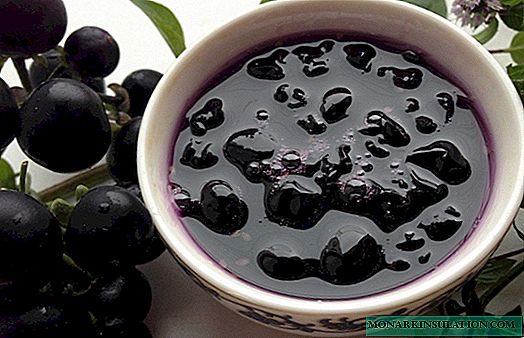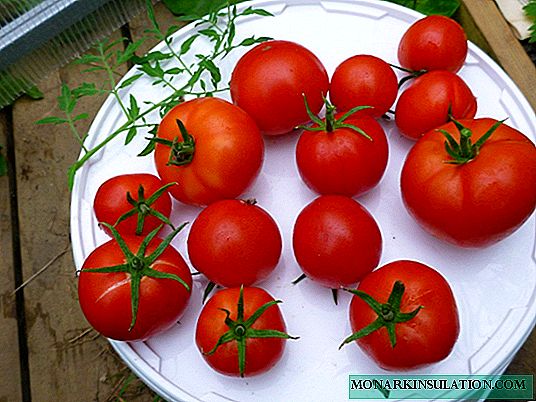Dear readers, from this article you will learn about the rules for growing zinnia from seeds, we will tell you when to plant it and how to care for seedlings. Let's talk about all the details and give tips. And in the beginning two words about the plant.
Garden zinnia or major is an annual plant from the aster family. A flat flower looks like a gerbera, but it has several rows of main petals, a tuberous core. Breeders have created a bright palette of zinnias, from yellow to light purple, with many shades of red and orange. The stem of the plant is dense, stable, it has several buds on it. They bloom gradually. After flowering, loose boxes are formed, they contain needle seeds.
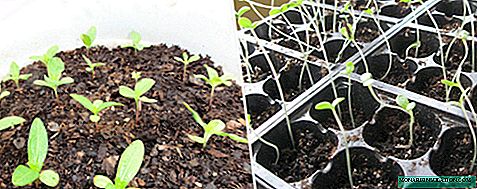
Majors bloom in mid-summer, delight with colors until the end of September. The heat-loving flower is afraid of frost, dies immediately. In the middle zone, Russia, Siberia, the Urals, zinnia is planted in the soil only with seedlings, the vegetation period until the flowering phase is 2.5 months. Only in warm regions sow seeds in flower beds. Self-cultivation of seedlings from seeds is not a laborious, but responsible business. To get good results, you need to know the basic rules for caring for flower seedlings.
Growing Zinnia from Seeds
Majors in a large assortment of planting material are offered by specialized stores. Many gardeners grow it themselves. Seeds of zinnia planted in February fully ripen in autumn. They are collected, dried, packed in bags, they must be signed, indicate the year of collection. Sowing of seed material is carried out in March, April, depending on the climatic conditions of the region, the end date of return frosts.
Too early to sow zinnia seeds for seedlings does not make sense. The plant will stretch, the feast will be poorly adapted to transplantation in open ground. The older the plant, the worse it transfers the transplant, the root system suffers.
There are two ways to land: with a pick and without it. But first, a few words about seed preparation. Before sowing, they are sorted, rejected damaged, thin, broken. Then the seed material is checked for germination, especially if it has been stored for a long time. Seeds are placed for 2 days in a moist tissue for swelling. Drying of planting material must not be allowed; it will deteriorate.
From excess water, the seed skin can become sick, moldy. It is enough to spray a little tissue twice a day from the spray gun. Needle seeds should swell well, soak in moisture and hatch. Severely dried seeds germinate for up to a week. Sometimes the seed is soaked in liquid for 30 minutes, only after that it is spread on a damp cloth. It is convenient to germinate seeds in a saucer, they put it in the sun or to the battery so that the grains are warmed up. If the sprouts did not appear, the test seed is discarded, a new batch is laid on the seedling. Seeds are well stored for up to two years. After this period, germination drops.
Sowing dates according to the Lunar calendar 2019
Zinnia is planted from the end of March until the first of April. With such sowing dates, flowers will delight buds for a long time, the seeds will have time to ripen.
In open ground planted in May-June. Focusing on the lunar cycles, in 2019 it is better to engage in sowing:
- March - 19-20;
- April - 16-17, 22-23.
A good time for transplanting flower seedlings in the open ground:
- May - 9-10, 15-16;
- June - 9-12.
The days of new moons and full moons are considered unfavorable for planting, picking plants:
- March - 5-7, 21-22;
- April - 4-6, 18-21.
- May - 4-6, 19-20
- June - 2-4, 16-17.
It is necessary to choose a specific date for planting seeds or seedlings in open ground according to the state of the soil, it should warm up to +8 ° C. If the temperature is lower, the plant becomes sick, may die. Zinnia is afraid of large temperature differences, this also needs to be taken into account. Any freeze will be disastrous for her.
The term for sowing seeds is determined by simple calculations. Vegetation period - the full phase of plant growth from emergence to seed ripening takes about 10 weeks, this is two and a half months. Seedlings are planted in the soil at the age of four to six weeks. By this time, the period of frost should end, nighttime temperatures should not drop below zero.
Sowing zinnia seeds at home
A flower loves loose, nutritious soil. For planting, they acquire a ready-made universal soil mixture, land for tomatoes. Many make the mixture on their own from 2 parts of humus, 1 part of sod land, you can add ½ part of river sand. It is advisable to steam the soil in a water bath or calcine in the oven at temperatures up to +100 ° C. The same disinfection effect is achieved when the earth is shed with boiling water. You can prepare a pink solution of potassium permanganate. It is not necessary to additionally fertilize the fertile soil mixture. Zinnia does not like excess nitrogen in the soil, it provokes rotting of the roots.
Planting seeds without picking is done in small peat cups combined in a block. They are filled with a soil family, leaving 1 cm to the edges, slightly crushed soil, make a small hole for a seed in the center. To guarantee in case of poor germination, many place 2 needle seeds in each of the cups.
It is convenient to plant seeds in peat tablets. For zinnia, the optimum diameter is 4 mm. Washers directly in the protective net are immersed in warm water for an hour. After that, they are put on a stand with sides. 2-3 seeds are planted in each tablet. After germination, the strongest shoot is left. In such a container, it is convenient to move the seedlings in open ground.
Sowing in the traditional way is carried out in a large planting capacity. To do this, make grooves with a depth of 5 mm. They place seeds at a distance of 2 cm, shed well the soil, sprinkle with dry earth. They tighten the landing capacity with a film - create a climate of the tropics, clean it in a warm place for 4-7 days. The plants do not need light at this moment, watering too.
Shoots are exposed in a bright place, the film is removed. Recommended temperature for germination + 22 ... +24 ° С. Picking into individual landing containers is carried out after the appearance of three full leaves. It is convenient to use paper cups, they are twisted from old newspapers, placed in plastic boxes, filled with soil.
Sowing seeds in a greenhouse
When climatic and greenhouse conditions allow, it makes no sense to engage in growing seedlings at home. Sowing seeds of zinnia is carried out in a greenhouse. The main advantages of greenhouse seedling cultivation are good illumination and plant acclimatization. During the period of frost, shoots are protected with white covering non-woven material. Ultraviolet needed by plants passes through it.
Cynium is planted in separate containers or boxes. Seeds are not recommended to be planted in the ground. Firstly, there may be pests in the ground, they will have to be treated. Secondly, the land after tomatoes and eggplants is not suitable for zinnia, plants have similar diseases. Thirdly, flower seedlings will not interfere with spring preparation of the greenhouse for planting heat-loving crops.
Seedling Care
Plants are usually placed on window sills. They need a well-lit, warm place. They feel good on any side of the world, except the north. There is not enough light for her. With a lack of ultraviolet, the seedlings begin to stretch, the stem forms a thin, unstable. It is necessary to increase daylight hours. A pinch will help save the escape: remove the upper part with disinfected scissors or with your hand. Pruning is carried out in full plants, if they want to achieve the formation of lateral shoots. After pinching, the stem begins to branch: lateral shoots form from the leaf sinuses.

Seedlings respond well to foliar top dressing (see details below), water spraying. They arrange a shower in the evening so that the leaves are not burnt by the sun - water droplets act like a lens. Once a week, it is advisable to carry out loosening. To do this, use wooden skewers or toothpicks. The topsoil is loosened to a depth of not more than 1 cm so as not to damage the roots.
3 weeks before planting in open ground, seedlings are tempered. It is carried out to the balcony or terrace when the air warms up to +12 ° C. Start with 20 minutes, gradually increase the interval. In hardened seedlings, the stem becomes thicker, it ceases to stretch, more quickly takes root after transplantation.
Features of watering seedlings and lighting
Tsiniya does not like stagnant water, she needs moderate watering, not more than 2 times a week. On cool days, watering should preferably be replaced by spraying the soil. For the prevention of root rot every 3 weeks, preventive treatment of the earth with a pink solution of manganese is carried out. For irrigation use settled tap or melt water. She is typed in a watering can with a narrow tip, poured to the very root.
Any light source is suitable for illumination, just leave it on for a long time. Close to the plant, you can put fluorescent or LED lamps, they are not so hot. The minimum distance is 60 cm. It is advisable to increase the daylight hours to 14 hours. Then the plant will develop fully.
Feeding seedlings
During the growing period, seedlings are enough to feed twice. The first after 2-2.5 weeks, the second - 2 weeks before planting in open ground. Too much fertilizing is not necessary. Plants of the aster family do not like the excess of organics, nitrogen, they begin to hurt. The plant needs potassium, it is in manganese, ash. Phosphorus, superphosphate is added for this. The best option is to use ready-made mineral mixtures for ficus, citrus. The solution is prepared according to the instructions.
For foliar top dressing, the "Ovary" biostimulator is ideal, it contains amino acids, stimulates lush flowering. You can replace the planned planned top-dressing with foliar, spray the plant with a solution of complex fertilizers, but the water volume is doubled. Such top dressing is carried out early in the morning, until the sun is very hot, or when the plant has a shadow. Wet leaves in the sun do not leave.

If the plant develops in a peat tablet, increase the dose of potassium top dressing. To do this, dissolve a tablespoon of wood ash in a liter jar of water. The solution is allowed to infuse for a week, after which it is diluted with water 1: 1, and the prepared solution for irrigation is used. Ash is also good in that it neutralizes the acidity of the peat mixture.
Picking seedlings
Before the final planting, seedlings are allowed to acclimatize in new conditions. If it was not possible to harden the seedlings at home, they take them out to the greenhouse or hotbed 2 weeks before planting, cover them for the night so as not to freeze. On warm days they take them outside, then leave them to spend the night at the flowerbed, first in shelter, then without it. This adaptation helps rooting the shoot.
A powerful root system is formed, which will not be afraid of new conditions. Before planting, the earthen lump is dried, the major is not watered. This is done to compact the soil around the roots.
The method of transplantation depends on the container in which the plant developed. The easiest option is to plant zinnia in peat tablets. It is enough to remove the reinforcing mesh from them, transfer the flower to the soil so that 1 cm of soil is above the tablet level. Peat and paper cups are removed without damaging the earthen coma, they are cut lengthwise along the entire length. It is impossible to plant a plant in paper and a peat cup; it will be difficult for horses to break out. The most difficult planting option when plants grow in one planting capacity. Soil is well soaked, turned into porridge so that plants can be reached without damage.
When the seedlings are ready for planting, it is enough to place it in a prepared hole or trench, depending on the layout of the flower bed.
Zineas look good singly and in a group. For landing choose a well-lit, sheltered from the wind site. Acidic soils are previously deoxidized, shed with a solution of ash and chalk. Majors grow sprawling, the minimum distance between plants is at least 35 cm.

